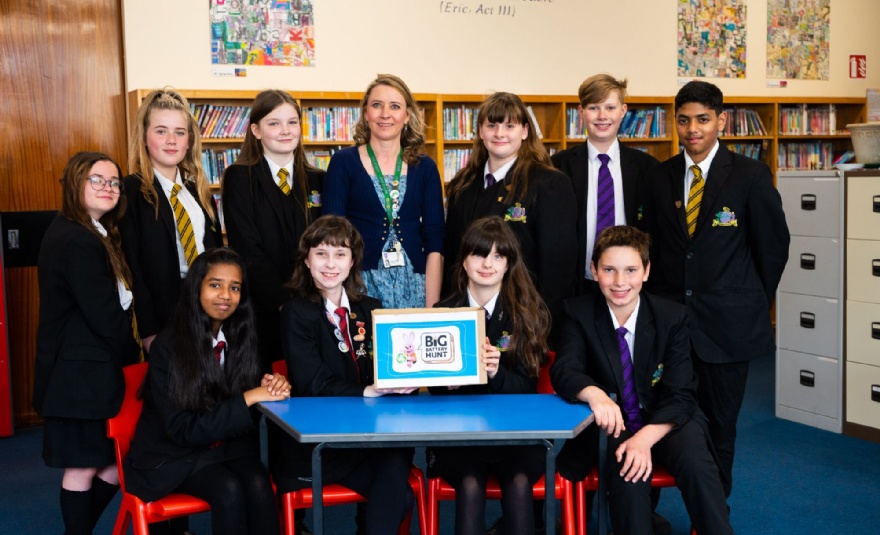Recycling scheme reduces our carbon footprint

Our school is turning a deeper shade of green, boosting our eco-friendly credentials and reducing our carbon footprint with a new recycling scheme.
We have introduced mixed recycling bins throughout our premises, purchasing almost 140 50-litre bins for classroom use and 80 slimline bins for offices.
Springwood’s Environmental Committee Lead, Agnieszka Munns, explained: “Our school has started using the mixed recycling bins alongside general waste bins in a bid to become more environmentally conscious. This is a key way we can save our finite resources and help the environment.”
The new service is provided by Biffa, which worked with us to help educate our students about the importance of recycling.
“Instead of teachers delivering talks to students, I decided to approach Lewis Planter from Biffa to represent his company’s recycling ethos, as I thought this would be more impactful,” continued Mrs Munns.
“Mr Planter visited our school on several occasions, delivering face-to-face and online assemblies to nearly 1,800 pupils and staff.
“Through his engaging presentations, he was able to convey to the students the need to recycle – both at school and at home."
Springwood is one of 11 schools in the West Norfolk Academies Trust, and there are plans to extend the scheme across other members.
“Before the Biffa mixed recycling bins were introduced, the school’s environment ambassadors had to empty paper recycling boxes from each classroom manually,” said Mrs Munns.
“Now, thanks to Biffa, the school not only recycles paper, but also cans, plastic bottles and clean food trays from the school canteen.”
Other measures in place include the recycling of pens and felt tips, and students also take part in the Big Battery Hunt initiative, run via the National Schools Partnership, to recycle old batteries.
Added Mrs Munns: “Having been a teacher for nearly 20 years, my role is not just to educate children about our changing world and the critical issue of climate change, but to empower them to be able to do something to save our planet and improve the local environment.
“If, through every tonne of recycled paper, we can save 17 trees that may become nesting sites for native birds, we have made a small difference.”
